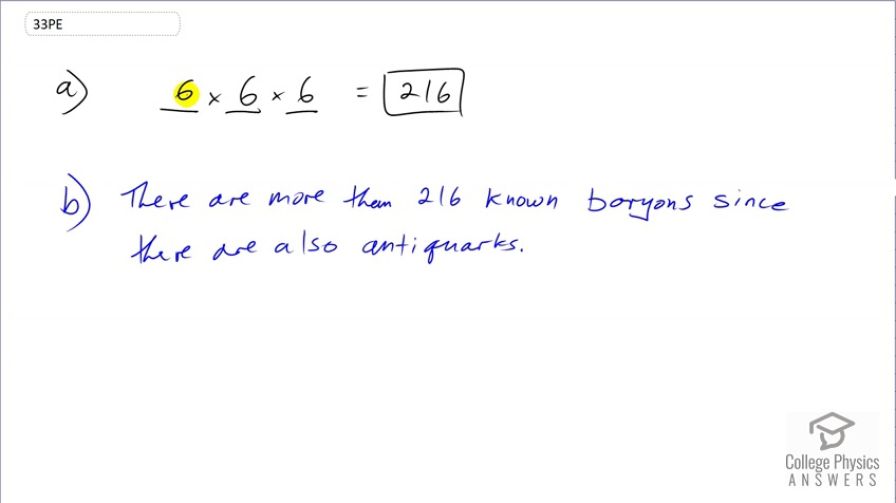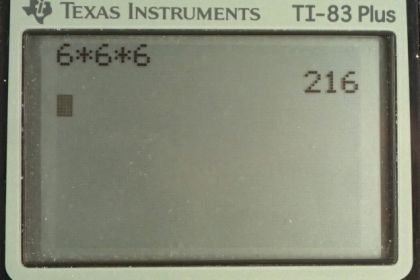Question
(a) Three quarks form a baryon. How many combinations of the six known quarks are there if all combinations are possible?
(b) This number is less than the number of known baryons. Explain why.
Final Answer
- 216
- There are more than 216 known baryons since there are also antiquarks.
Solution video
OpenStax College Physics, Chapter 33, Problem 33 (Problems & Exercises)

vote with a rating of
votes with an average rating of
.
Calculator Screenshots
Video Transcript
This is College Physics Answers with Shaun Dychko. Baryons are composed of three different quarks and there are six quark flavors possible; there's up, down, strange, charm and top and bottom. So the first quark can be one of six possibilities, the second quark can also be one of six possibilities and the third quark as well six possibilties and so the total number of combinations is the product of the number of possibilities of each quark. This is the fundamental accounting principle where you take the number of possibilities of each thing and in combination, the total number of possibilities is the product of each of them. So six cubed is 216. Now there are more than 216 known baryons because there are also anti-quarks to consider.
